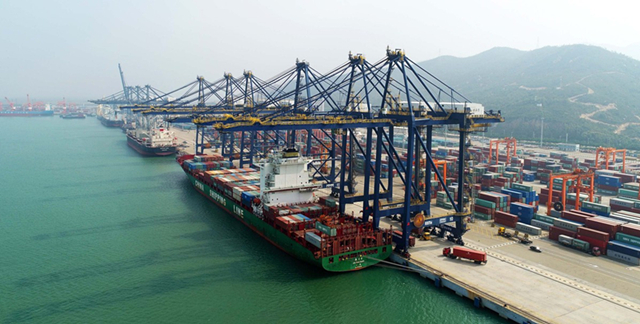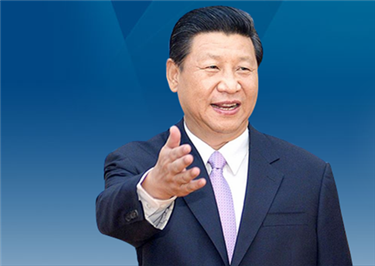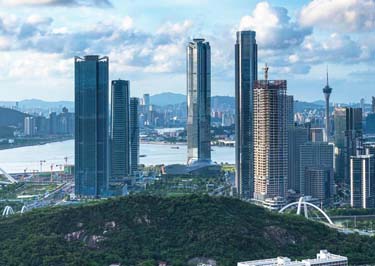Gaolan Port Economic Zone
The National Zhuhai Economic & Technological Development Area (Gaolan Port Economic Zone) is forming a comprehensive harbor industry covering 380 sq km (147 sq miles) in southwest Zhuhai on the tip of Jinwan District west of Zhuhai (Jinwan) Airport.
It is situated some 83 km (52 miles) from Hong Kong, 42 km (26 miles) from Macao, 150 km (93 miles) from Guangzhou, and 180 km (112 miles) from Shenzhen.
Established as a South China hub port in 2006, the Gaolan Port Economic Zone was upgraded to a National Economic & Technological Development Zone in March 2012.
The economic zone contains the largest terminals of liquid chemicals and bulk cargos in the Pearl River Delta, and is completing construction of two 100,000 ton-class container berths designed to handle 1.6 million TEUs annually, a 200,000-dwt main shipping lane, 150,000-dwt Ganghong Coal Terminal to clear the way for more shipping routes and upgrade to a Generation IV port.

Gaolan Port International Container Terminal [Photo by Zhang Zhou / Guanhai App]
As one of the main chemical industry clusters of Guangdong, it is becoming a world-level shipbuilding and ocean engineering equipment manufacturing base, state-level clean energy and petrochemical base, and regional port logistics center.
Since the opening of Guangzhou-Zhuhai Railway and Gaolan Port Expressway at the end of 2012, the port has been advancing its distribution and collection network. In addition, a multimodal freight yard came under construction in June 2021 on the Exclusive Shugang Rail Line, connecting Gaolan Port directly with major terminals and enterprises that handle large shipments.
A harbor industry cluster involving fine chemicals, petrochemicals, electric power, energy, offshore equipment manufacturing, and leisure tourism has also been formed.
Port logistics is a support industry of this zone. Fortune Global 500 enterprises BP, SANY, Shell, Lubrizol, Solvay, Hutchison Whampoa as well as central enterprises CNOOC, PetroChina, SinoChem, COSCO, and Shenhua have settled here. It has become the "engine" and "leader" on the west bank of the Pearl River.
A portal connecting the Xijiang River and South China Sea to the world, the port operates 44 shipping routes to more than 10 countries and regions, including major domestic coastal ports and ports along the Xijiang River.







